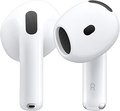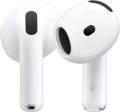Apple's latest AirPods Pro 2 is breaking new ground in healthcare technology by transforming from a premium audio device into an FDA-approved hearing assistance tool. This development represents a significant shift in making hearing care more accessible and affordable for millions of people with mild to moderate hearing loss.
Revolutionary Healthcare Integration
The AirPods Pro 2 now offers clinical-grade hearing assistance capabilities, complete with FDA approval in the United States. Users can conduct hearing tests directly through their iPhone's Health app, creating detailed audiograms that map their hearing capabilities across different frequencies. This feature marks a significant departure from traditional hearing aid solutions, making hearing assessment more accessible and convenient for users.
Accessibility and Cost Benefits
Traditional hearing aids often come with substantial financial barriers, but the AirPods Pro 2, priced at USD 249, presents a more affordable alternative. The device includes advanced features like Conversation Awareness and Personalized Volume, which automatically adjust audio based on the surrounding environment. This price point makes hearing assistance technology significantly more accessible to those who might otherwise avoid treatment due to cost concerns.
 |
|---|
| The AirPods Pro 2, now featuring hearing assistance technology, represent an affordable alternative to traditional hearing aids |
Testing and Performance
The hearing test feature provides a comprehensive assessment of users' hearing capabilities through a series of beeps at various frequencies and volumes. The test requires a quiet environment and proper earbud fit to ensure accurate results. The system generates an audiogram that shows hearing performance across different frequency ranges, helping identify potential hearing loss patterns or areas of concern.
Limitations and Considerations
While innovative, the AirPods Pro 2's hearing capabilities have some limitations. The device is primarily suitable for mild to moderate hearing loss and may not be appropriate for those with severe hearing impairment. Battery life of 5-6 hours may be insufficient for users requiring all-day hearing assistance. Additionally, while available globally, the full hearing aid functionality is currently only approved for use in the United States, with other regions having limited access to certain features.
Future Implications
This integration of consumer electronics with medical technology signals a potential shift in how we approach hearing care. While not a complete replacement for traditional hearing aids, the AirPods Pro 2's features represent a significant step toward democratizing hearing assistance technology and could inspire further innovations in the hearing care industry.





